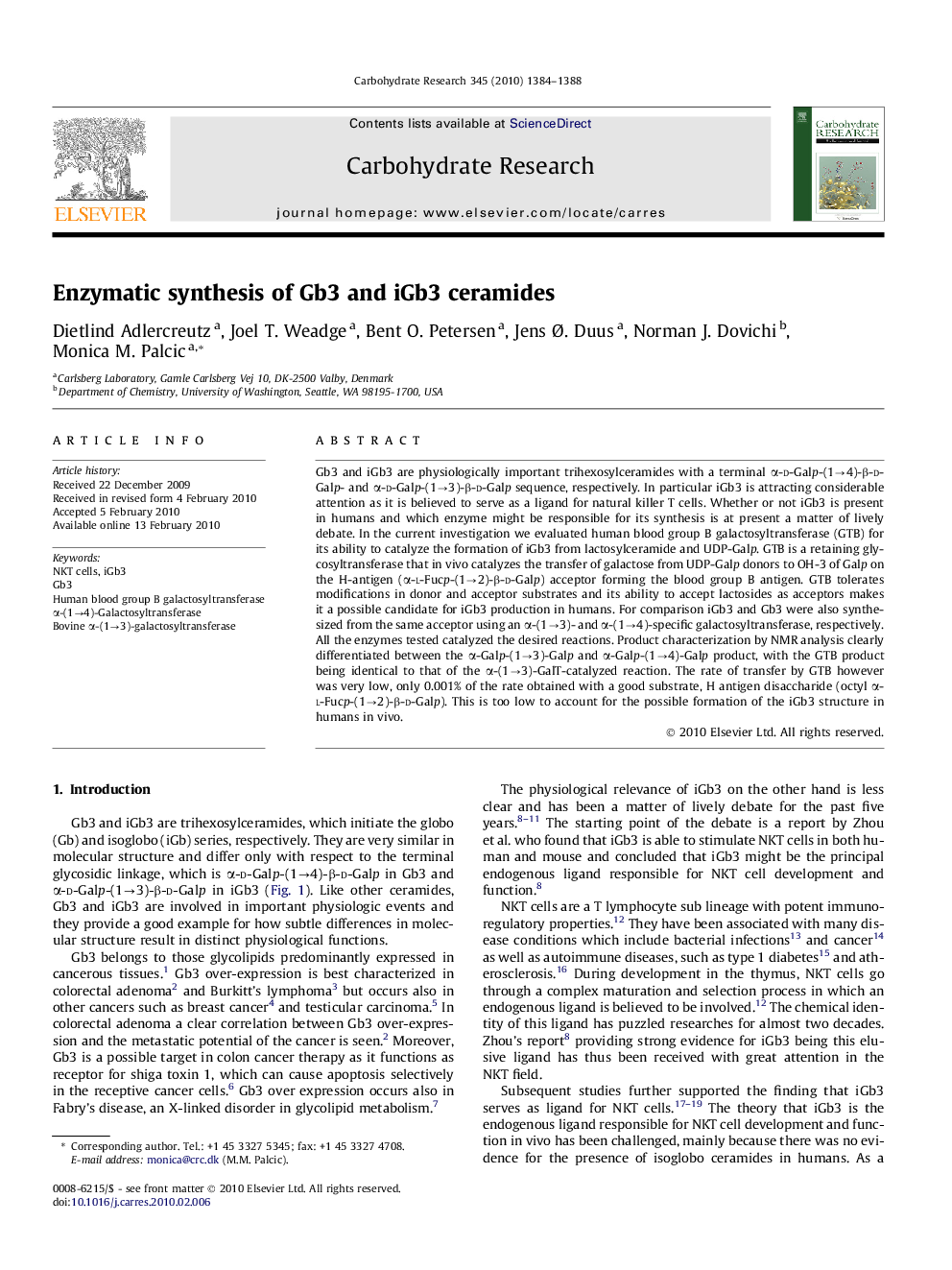| کد مقاله | کد نشریه | سال انتشار | مقاله انگلیسی | نسخه تمام متن |
|---|---|---|---|---|
| 1390652 | 983117 | 2010 | 5 صفحه PDF | دانلود رایگان |

Gb3 and iGb3 are physiologically important trihexosylceramides with a terminal α-d-Galp-(1→4)-β-d-Galp- and α-d-Galp-(1→3)-β-d-Galp sequence, respectively. In particular iGb3 is attracting considerable attention as it is believed to serve as a ligand for natural killer T cells. Whether or not iGb3 is present in humans and which enzyme might be responsible for its synthesis is at present a matter of lively debate. In the current investigation we evaluated human blood group B galactosyltransferase (GTB) for its ability to catalyze the formation of iGb3 from lactosylceramide and UDP-Galp. GTB is a retaining glycosyltransferase that in vivo catalyzes the transfer of galactose from UDP-Galp donors to OH-3 of Galp on the H-antigen (α-l-Fucp-(1→2)-β-d-Galp) acceptor forming the blood group B antigen. GTB tolerates modifications in donor and acceptor substrates and its ability to accept lactosides as acceptors makes it a possible candidate for iGb3 production in humans. For comparison iGb3 and Gb3 were also synthesized from the same acceptor using an α-(1→3)- and α-(1→4)-specific galactosyltransferase, respectively. All the enzymes tested catalyzed the desired reactions. Product characterization by NMR analysis clearly differentiated between the α-Galp-(1→3)-Galp and α-Galp-(1→4)-Galp product, with the GTB product being identical to that of the α-(1→3)-GalT-catalyzed reaction. The rate of transfer by GTB however was very low, only 0.001% of the rate obtained with a good substrate, H antigen disaccharide (octyl α-l-Fucp-(1→2)-β-d-Galp). This is too low to account for the possible formation of the iGb3 structure in humans in vivo.
Figure optionsDownload as PowerPoint slide
Journal: Carbohydrate Research - Volume 345, Issue 10, 2 July 2010, Pages 1384–1388